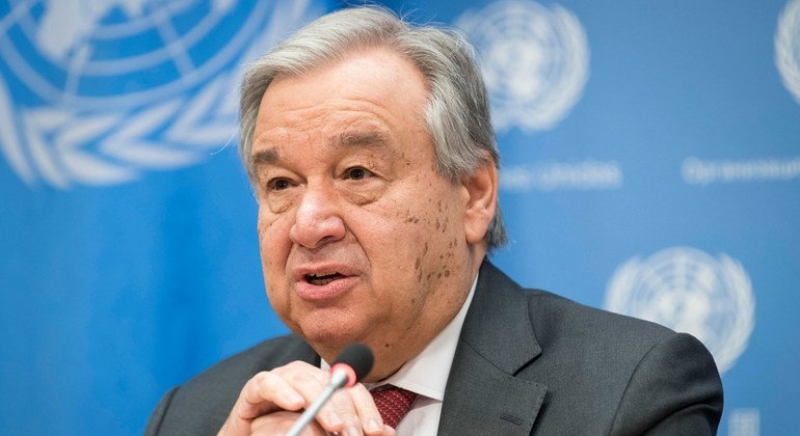- India Sees 9% Drop in Foreign Tourists as Bangladesh Visits Plunge |
- Dhaka Urges Restraint in Pakistan-Afghan War |
- Guterres Urges Action on Safe Migration Pact |
- OpenAI Raises $110B in Amazon-Led Funding |
- Puppet show enchants Children as Boi Mela comes alive on day 2 |
UN Chief Urges Immediate Israel-Iran Ceasefire

UN Secretary-General António Guterres. (file)
UN Secretary-General António Guterres said on Wednesday that he remains “profoundly alarmed” by the ongoing military escalation between Israel and Iran, as the two sides continue to trade airstrikes.
“I reiterate my call for immediate de-escalation leading to a ceasefire,” Mr. Guterres said in a statement, strongly appealing against any further internationalization of the conflict.
“Any additional military intervention could have enormous consequences, not only for those involved but for the entire region and international peace and security,” he warned.
He condemned “the tragic and unnecessary loss of life, injuries to civilians, and damage to homes and critical civilian infrastructure.”
Deadly escalation
The crisis began on Friday when Israel targeted nuclear and military sites across Iran, prompting Tehran to launch retaliatory strikes on Israeli cities.
Since then, more than 250 people have reportedly been killed across both countries.
The International Atomic Energy Agency (IAEA), which has monitored Iran’s nuclear program for decades, said it received information that two centrifuge production facilities were struck on Wednesday.
The TESA Karaj workshop and the Tehran Research Center had been under IAEA monitoring and verification as part of the 2015 international agreement known as the Joint Comprehensive Plan of Action (JCPOA).
“At the Tehran site, one building was hit where advanced centrifuge rotors were manufactured and tested,” the agency said in a tweet. “At Karaj, two buildings were destroyed where different centrifuge components were made.”
Last week, the IAEA passed a resolution declaring that Iran was not complying with its non-proliferation obligations.
The text cited Iran’s “many failures” to provide the agency with full and timely cooperation regarding undeclared nuclear material and activities at multiple sites.
Diplomacy remains key
As tensions in the Middle East intensify, the Secretary-General emphasized that “diplomacy remains the best and only way to address concerns regarding Iran’s nuclear program and regional security.”
He underscored that “the UN Charter remains our shared framework to save people from the scourge of war,” and urged all Member States to fully comply with it and with international humanitarian law.

